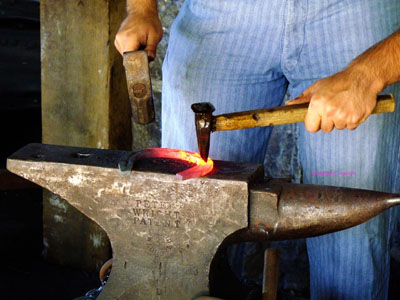Geography
9. Search by Village – Most genealogists get fixated on searching for their ancestors by name. They will then get frustrated when they cannot find a match even after having tried multiple spelling variations on the name. Have you ever though about searching for someone by another attribute? For example, if you know your ancestor came from a small town or village and you know the approximate date of the record you are looking for, consider performing a search by the village name for that date range. Small villages do not produce that many records. A quick read of the records that pop up for the village may produce some interesting surprises. Like other previously unknown relatives.
10. Street Names Change – Over time, villages grow into towns and towns grown into cities. At least that is how most people envision the past. Actually, towns rarely grow into cities. What usually happens is that several towns close to each other merge to form a city. When this happens, new cities have a problem. There are too many streets with the same name. In other words, there are overlapping street names across the merged towns.
Every town has a main street, an elm street, a church street, etc. but a city can only have one main street, one elm street and so on. That means many streets in the former towns have to change names. Therefore, for example, never assume the church street that is listed on your ancestor’s record is the same church street today. The best way to check the location of a street name is to consult an old map of the region before the amalgamation and formation of the city.
11. Local Histories – Local histories can be an invaluable source of clues as to what happened to family members. Local histories typically talk about major events in the region that could have impacted the lives of your ancestors. For example, a major drought or a major flood could have forced your ancestor to move. Military conflicts, disease and social influences can also play a major role in migrations. Often, if there a mass exodus of people leaving the region, the local history will give some clue as to where they went.
12. Changing Jurisdictions – Regional and county lines change over time. So do state, provincial and country lines. Genealogists are often tripped up by this fact. When searching for old records in local county libraries and county courthouses, make sure you have the correct county for the time period in question. We can not stress this one enough.
13. Towns and Occupations – During the industrial revolution (and even today), certain towns were associated with certain industries. Often the associations were very specific. For example, in England there were towns that specialized in making just gloves. This trait can sometimes be applied to entire cities. For example, Detroit is still associated with the automobile.
If the trail of an ancestor has gone cold and you think your ancestor may have moved somewhere else, consider doing a bit of research on the history of the town. It is possible that the town specialized in one industry. This can give a clue as to the occupation of your ancestor. It can also be used to make a reasonable guess as to where your ancestor may have moved. The most common reason people moved is to look for work (which by the way still holds true today). Find other towns that specialized in the same industry as the town where you last traced your ancestor. You may find that your ancestor has moved to one of these towns looking for work in their field of expertise.


